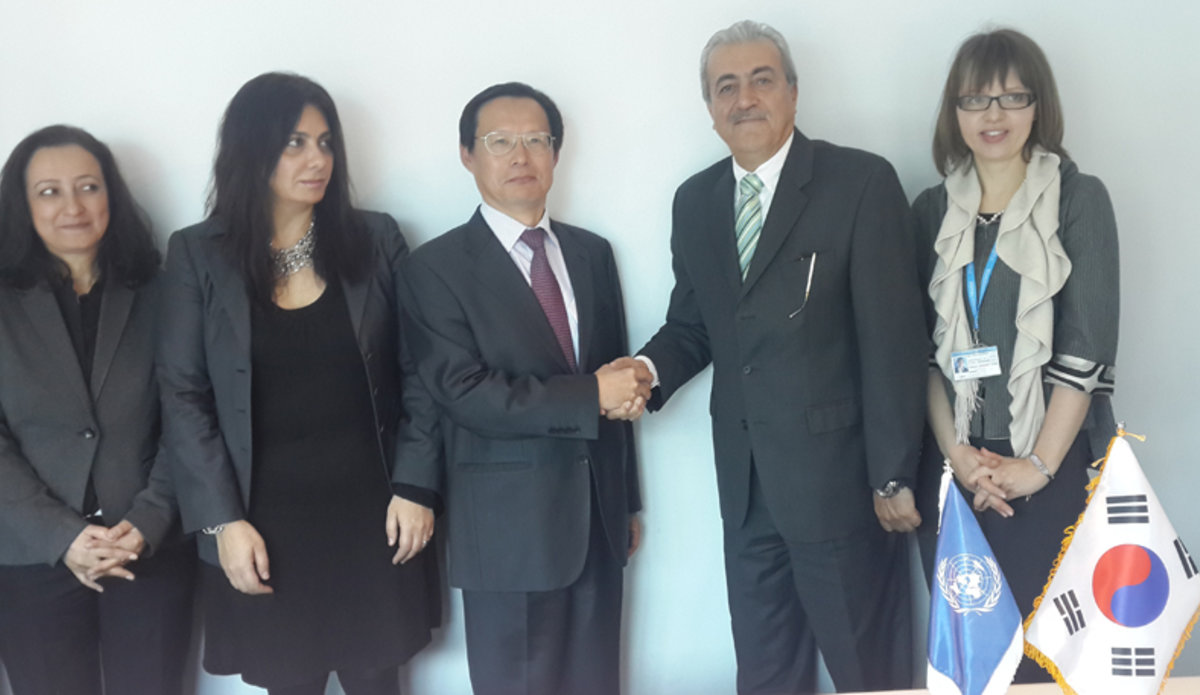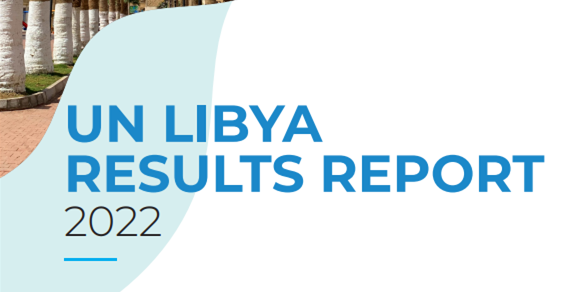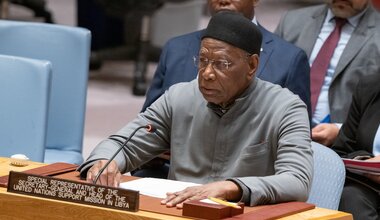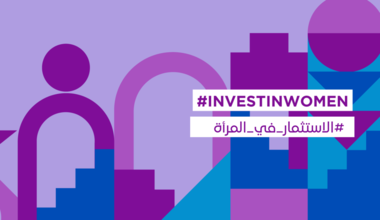UN System in Libya and Republic of Korea Commit to strengthen the Humanitarian Assistance to Libya
Republic of Korea contributes 1.18 million for humanitarian assistance in Libya
Tunis, Tunisia 28 January 2015 – The Korean Government has contributed USD 1.18 million to support the humanitarian assistance to Libya. The contribution aims at augmenting the United Nations’ ongoing involvement to address the humanitarian needs resulting from the armed conflict in Libya.
The Ambassador of the Republic of Korea to Libya, Lee Jong-kook, said the contribution to meet the urgent humanitarian needs in Libya was in response to the UN Appeal announced in September last year. He urged the parties to the conflict in Libya to allow the safe delivery of humanitarian aid and work towards a peaceful solution.
“The Korean Government wishes its contribution this time could help to alleviate sufferings the Libyan people such as children, Internally Displaced Persons (IDPs) and the injured are experiencing,” the Ambassador added at a ceremony at the Tunis offices of the United Nations Support Mission in Libya (UNSMIL) on the occasion of the announcement of the contribution.
UNSMIL’s Officer-in-Charge, speaking on behalf of the United Nations in Libya, thanked the Korean Government for “this generous contribution and the momentous endorsement of our work for the ones who need it most in Libya.”
He added: “This contribution will enable UN Humanitarian Agencies and their partners to help people in the affected areas in Libya, supporting the under-funded operations in health, food and protection.”
The contribution will help World Health Organization (WHO) towork with the national health authorities and urgently strengthen the Early Warning and Response System in Libya via countrywide reporting network, as the current crisis in Libya has revealed significant gaps in the health sector, particularly in the systems for disease surveillance and information. Gaps in these areas could result in the delayed detection and response to deadly infectious diseases identified in Libya such as influenza, measles, as well as increase the risk of potential diseases such asEbola. The contribution also will be utilized to build the capacity of middle and senior health care managers working in emergency response, as well as to establish a network of health care professionals that can address the emergency response in a coordinated and timely manner, which is crucial at a time whenUN and the international community in Libya have limited access due to the prevailing security conditions.
In line with its Migration Crisis Operational Framework,International Organization of Migration (IOM) will streamline the funds to address gaps and enhance humanitarian assistance, through providing direct Assistance to internally displacedfamilies and stranded migrants in Libya. IOM will procure and distribute emergency relief items to more than 3000 migrants and vulnerable displaced populations within Libya, and provide community based psychosocial support to 500 internally displaced individuals and migrants. The proposed response will support an established network of Libyan civil society organizations, which have been instrumental so far in assessing needs and distributing first aid.
The contribution will allow World Food Programme (WFP) to continue their targeted food assistance programmes for the most vulnerable of the internally displaced persons (IDPs), with support from partners on the ground, in accordance with the pressing needs disclosed following the Inter-agency Assessment conducted in December 2014.
About UN humanitarian activity in Libya
The United Nations Humanitarian Agencies launched on 19 September 2014 the Libya Humanitarian Appeal and presented it to the donor community for proposed resource mobilization in the amount of approximately US$35 million. The Libya Humanitarian Appeal sets out the groundwork for a humanitarian response in the country based on 3 strategic objectives that will guide sector-specific actions, carried out in partnership with national stakeholders based on the needs identified on the ground. The Appeal targets internally displaced people, migrants/refugees, vulnerable groups in need and affected host communities inside Libya.
 United Nations Peacekeeping
United Nations Peacekeeping UN
UN








